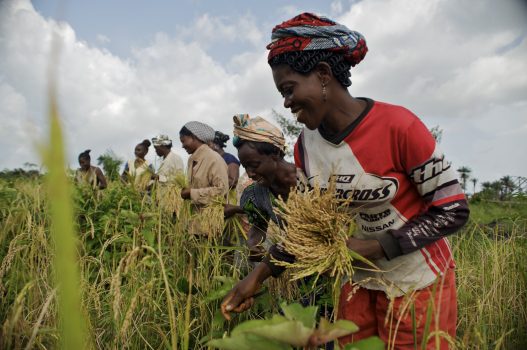The government of Liberia and the International Fund for Agriculture Development (IFAD) have signed a US$47.6 million Tree Crops Extension Project II (TCEP II) aimed at improving food and nutrition security for about 10,000 cocoa smallholder producers in Liberia.
IFAD is an international financial institution and a specialized United Nations agency otherwise known as the UN food and agriculture hub.based in Rome.
The agreement, according to a dispatch, was signed recently by Gilbert F. Houngo, President of IFAD and Liberia’s Finance and Development Planning Minister Samuel D. Tweah, Jr.
The statement from IFAD stated that the project financing includes a US$11.9 million grant from IFAD and will be co-financed by the private sector (US$3.4 million), the Government of Liberia (US$2.5 million) and the beneficiaries themselves (US$1.8 million).
It said IFAD is working to fill the financing gap of US$16.2 million with climate financing and additional co-financing for rural roads in the project area.
The statement quotes IFAD Director for West and Central Africa, Lisandro Martin, as saying that “TCEP II will focus on enabling poor rural women and men to overcome poverty,” adding that it will promote economic empowerment that provides rural women with equal opportunities to participate and benefit from profitable economic activities in the cocoa value chain.
Agriculture is the primary livelihood source for more than 60 percent of Liberia’s population. Traditionally, tree crops, including cocoa, rubber and timber, have been one of the country’s largest sources of employment, as well as an integral part of its social fabric.
Crop diversity, according to the statement, will also be promoted through inter-cropping which can improve food and nutrition security, shade management and income generation, noting that, specific measures will be put in place to include women and youth and promote their access to benefits of the project, such as training and financial services.
The project will also strengthen and climate-proof rural infrastructure through the rehabilitation and maintenance of roads and the construction of humidity-controlled warehouses to store cocoa
beans during the wet season when roads are not passable.
It will enhance the delivery of quality services to cocoa farmers and guarantee sustainability through improved extension services and greater access to inputs and markets.
Since 1981, IFAD has financed seven rural development programs and projects in Liberia at the total cost of US$164.9 million, with an IFAD investment of US$101.9 million. These projects and programs have directly benefited 220,800 rural households.
TSS/abj/APA


